Blaise Agüera y Arcas: What Is Intelligence?
A review of What Is Life?: Evolution by Computation, and What Is Intelligence?: Lessons from AI about Evolution, Computing, and Minds, by Blaise Agüera y Arcas
Artificiality Co-founders, Helen and Dave Edwards, spoke about Rethinking Value in the Age of AI at the EY Innovation Realized conference at the Palace of Fine Arts in San Francisco on April 16 & 17.

We spoke at EY's Innovation Realized conference on the topic of "Rethinking Value in the Age of AI" on April 17, 2024 at the Palace of Fine Arts in San Francisco, CA.
Thank you for joining us. At Artificiality, we aim to make the philosophical more practical and the practical more philosophical. We work with people to help them get a better understanding of what's possible with AI, what they would actually desire with AI, what it means to be human in this age of AI, and how to think about building the capabilities to make the outcomes they want.
Right now, everybody's racing towards a destination designed by a relatively small group. Over the last 20-40 years in the technology industry, we've reduced beautiful experiences like music and dance into manageable data, measuring clicks, views, and time spent to make decisions and money.

While it's been a great boost to the economy, it has removed the context of our lives that exists inside machines. You can see transactions, but you won't know the motivations behind them. Context is everything in our lives - who we're with, where we go, and the choices we make. Machines don't understand this context today.
The Promise of Generative AI:
One of the core promises of generative AI and modern AI is that it can absorb an extraordinary amount of unstructured data, including some amount of life's context from the stories, documents, conversations, and transcripts it processes.
After a prompt, it can take this contextualized information and create something unique and individual for each of us. While we're still in the early stages and don't know how much context it can truly understand and recreate, this is one of the most profound advances in technology. The possibility exists that a machine will understand us more deeply than through just transactions and clicks.
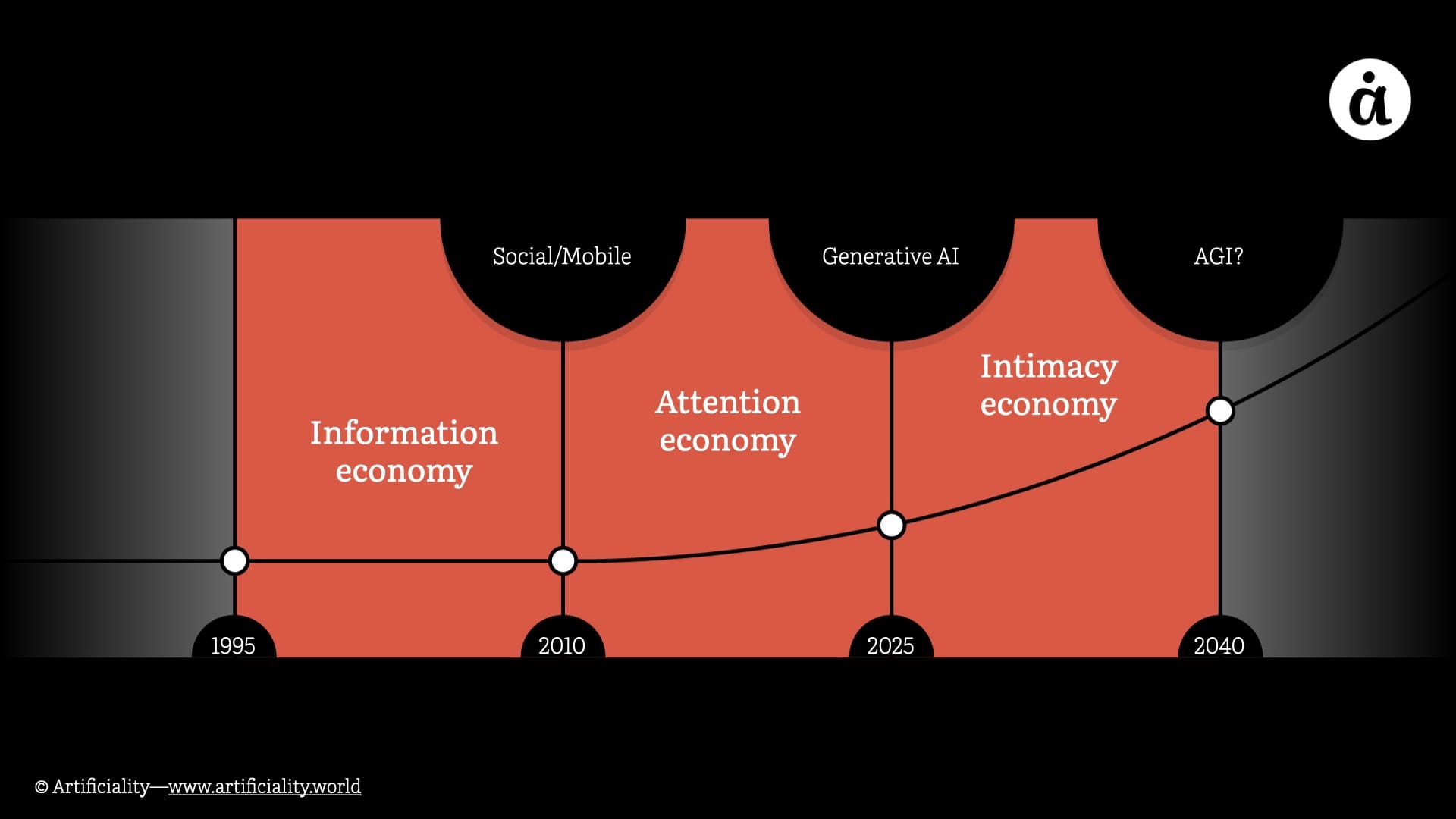
Three Phases of Technology:
A Travel Story:
Helen and I recently spent three weeks in New Zealand with her mom and my dad. Today's technology would see tickets, reservations, and searches, but the actual experience of traveling is much bigger. It starts with ideas, conversations, and planning, then moves to purchasing and the actual journey itself, filled with unexpected changes, seeing friends and family, and dealing with health issues. Afterwards, there's sharing photos and building a website to communicate the experience.
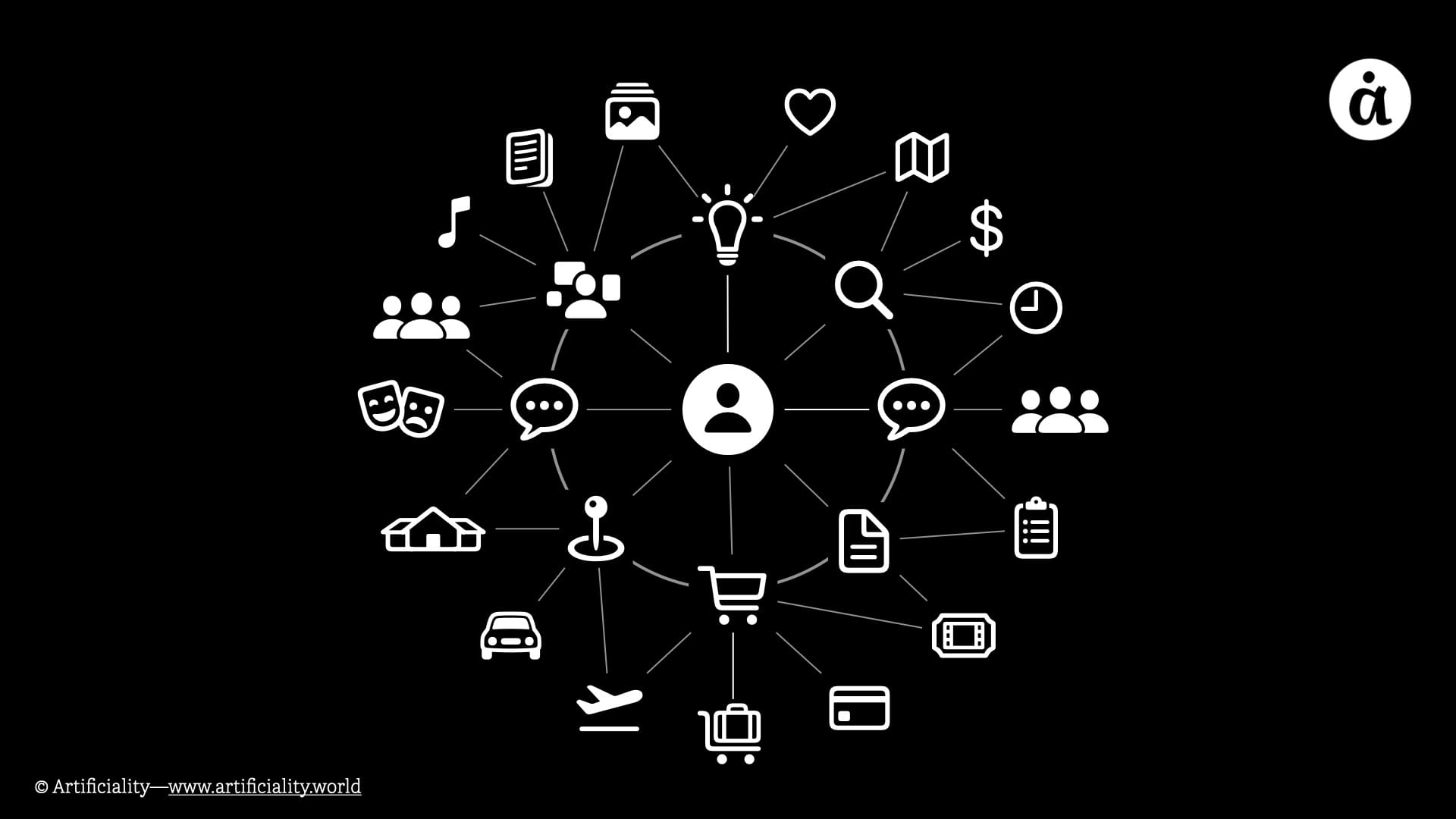
Generative AI is starting to play a role in each stage, from chats and documents to searches and itinerary creation. The old world tracked transactions, but this new world is starting to see and participate in the conversations and motivations behind our choices. How much it will understand and what it will do with that understanding remains to be seen, but it may create different, personalized experiences for each of us.
Next up, Helen is going to talk through something that's a bit more complex.

Let's continue with the story of our trip to New Zealand. You just had a discussion about where a machine might have helped you with a travel situation, from booking a different flight to detecting when you're too anxious to sign a contract. This internal datafication and context is everything, and we need to consider what context means once Silicon Valley starts defining it for us.
Applying Complexity Science:
We work with people to help them take ideas from complexity science and apply them in their work. We stick with key overarching definitions and features of complexity rather than getting into the mathematical weeds. You learn and see things differently when you put this lens of complexity across things.
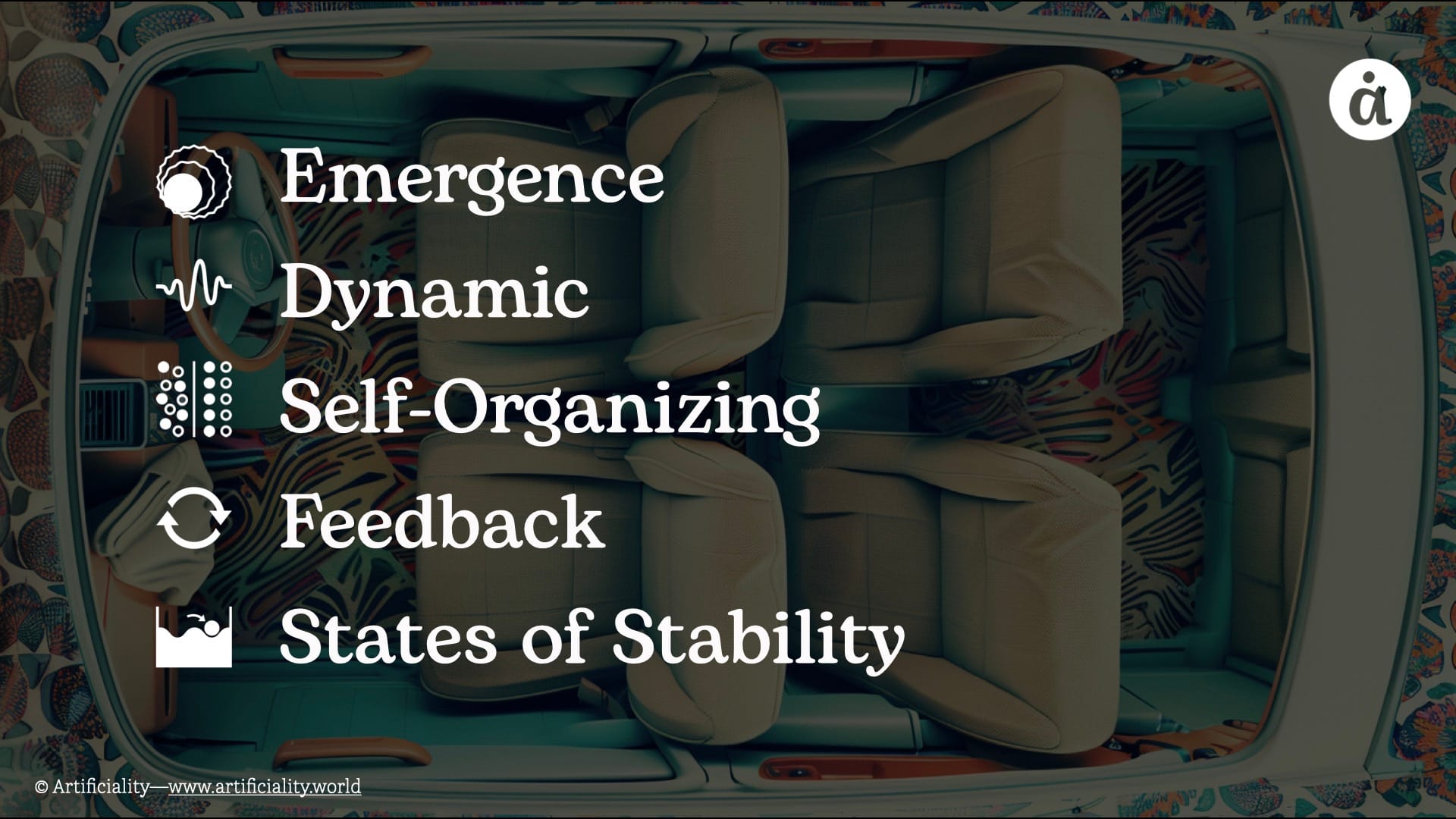
The Car Dynamics:
Let's take a small example to explain how this speaks to bigger, grander themes. When the four of us got together in New Zealand, we knew each other perfectly, but had no idea what would happen when put together. That's a key thing about complexity - you know the individual parts but are unsure what emerges when they interact.
Features of Complexity:
We work with about 14 features of complexity that provide mental models to query systems. In the car, we had:
Emerging Experiences:
What emerged and fundamentally changed our day, travel experience, and learning about each other depended on these complex interactions. This raises questions about what context really is and if machines can deliver on the promise of capturing it. Is context going to dematerialize as machines examine it?
The Ephemeral Nature of Values:
Tech philosopher Thi Nguyen talks about how human values emerge over our lives from society and what we choose to value. As we try to mathematize and digitize values, they somehow disappear. There's an inverse relationship between the ease of capturing a metric and its meaningful connection. As we capture values and put them in math, they become ephemeral and cease to be values, just becoming the algorithm.
The Moving Frontier of Context:
I wonder if there's a part of context that's a moving frontier, and as generative AI diffuses across platforms, the way we define, experience, and create meaning around context changes. The promise of generative AI today wanders off in a different direction from this idea.
We've discussed how AI might intimately understand and capture some level of the complexity in our lives, like the conversations in the car. These machines can see patterns across dimensions we can't even comprehend due to our human limitations. It's interesting to ponder what they might understand in our complex systems.
Contrast to Current Generative AI:
However, there's a contrast to how generative AI is being built today with large, singular models we all tap into, trained on one dataset. This singular intelligence deployed across an organization can be problematic due to the sameness it introduces.
Metaphor of the Bicycle for the Mind:
In the late 1970s, Scientific American published research on the movement efficiency of various species. It included the efficiency of a human on a bicycle, showing we become elite when using this tool. Steve Jobs was inspired and thought the computer would be a bicycle for our minds, vastly increasing our efficiency. The past 40 years have proven him right.
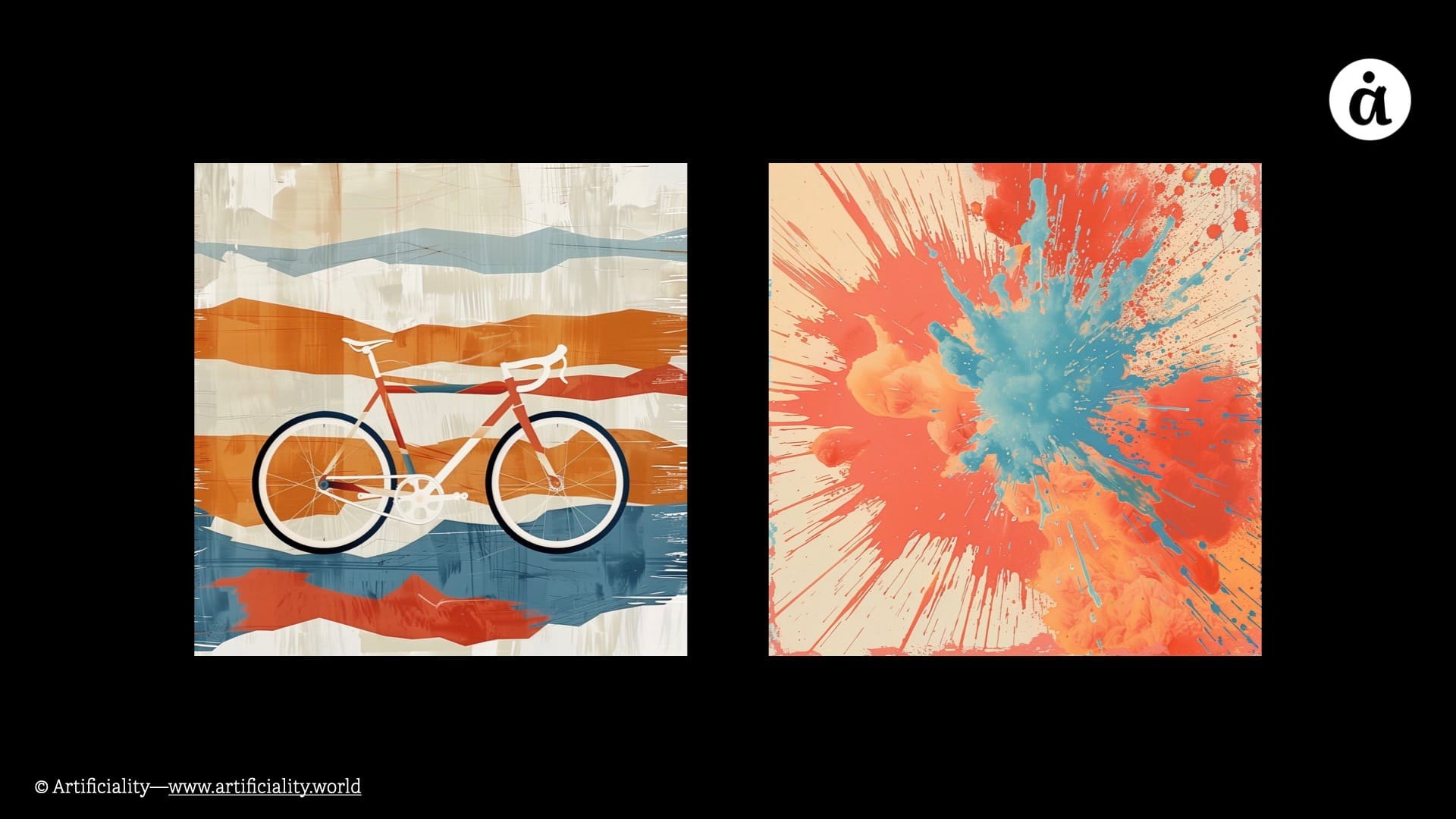
From Bicycle to Mind:
But the new world of generative AI breaks that metaphor. These machines are no longer just tools we steer like a bicycle. We're giving them the ability to make decisions based on their own understanding, reasoning, and agency, different from ours. So we've shifted to thinking of AI as a mind for our minds on a bicycle. The most important words are "for our" - what does it mean to create AI that works for us?
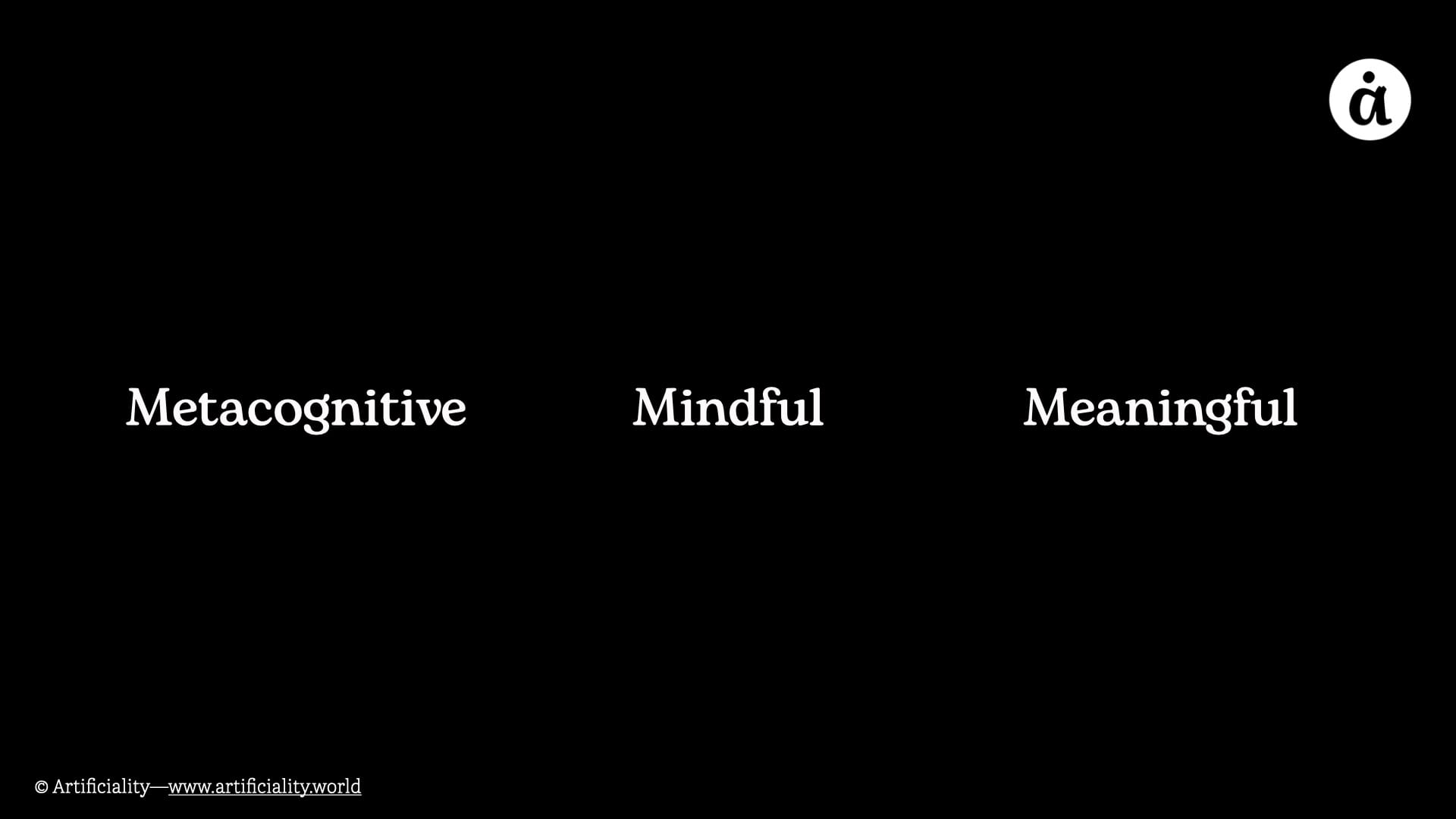
Three Ideas for AI Working For Us:
Breaking Boundaries:
All of this pulls together into the idea and dream of breaking the boundaries of how we think about AI. Is it possible to have AI help us be more metacognitive, mindful, or find meaning?
Writing and Conversations About AI (Not Written by AI)